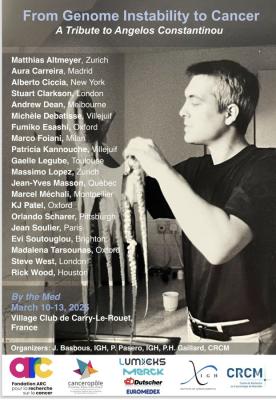Bio sketch:
Eva Hoffmann is professor in genomics and reproductive health at the Medical School, University of Copenhagen, Denmark. Her lab investigates genome diversification processes in the human germline using single-cell and low-input genomics, in particular meiotic recombination and chromosome segregation. They also assess the impact on the high rate of chromosome errors on fertility and congenital disorders (Gruhn et al, Science, 2019). Eva serves on the executive board of ReproUnion (www.reprounion.eu) and is their Scientific Coordinator. Research in her lab is funded by the European Research Council and the Novo Nordisk Foundation.
Abstract:
Genome diversification occurs in the germline of sexually reproducing organisms. Our understanding the processes that drive diversification as well as those that safeguard genome stability is limited due to the requirements for single cell genomics as well as access to the human germline. In humans, reproduction is surprisingly inefficient, especially in females, where a baseline of 20% of human eggs contain a chromosome error (aneuploidy). Aneuploidies results in preclinical and clinical pregnancy losses and are the leading cause of congenital disorders in human. Recently, we have developed new technologies that allow us to probe the human germline directly to explore the incidence and molecular mechanisms that cause the high rate of chromosome errors (aneuploidy). Our findings reveal that chromosome errors in human eggs shape fertility rates across reproductive life span in human females. Such errors are chromosome-specific and suggest that the high rate of pregnancy loss may be an evolutionary stable strategy in human females. The processes that may contribute to chromosome errors as well as rearrangements of chromosomes and their implications for reproductive health will be discussed during the talk.



